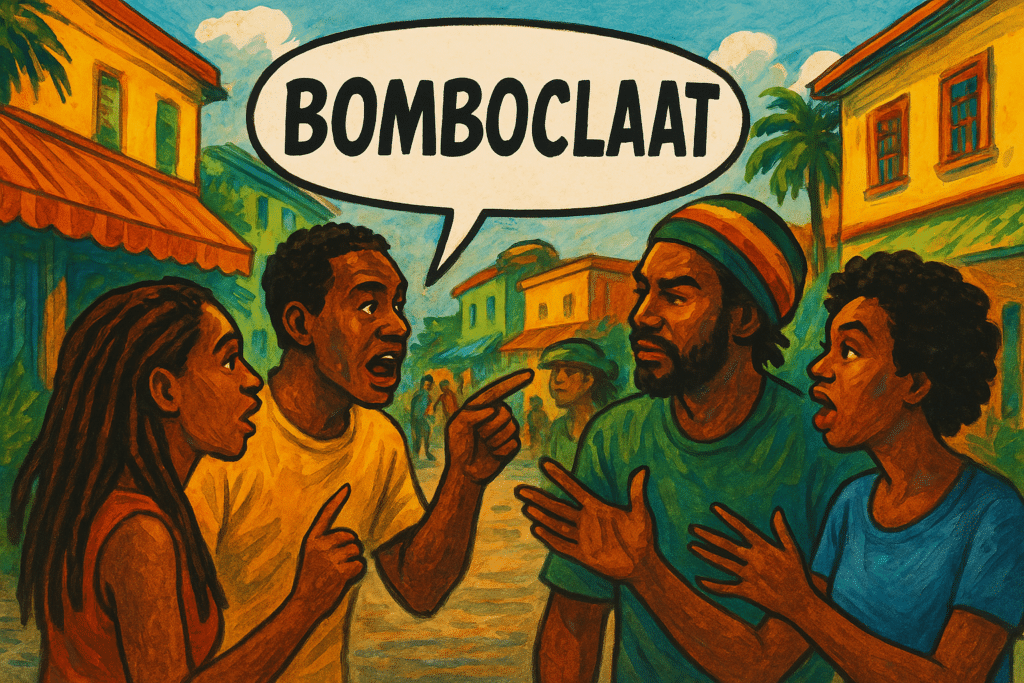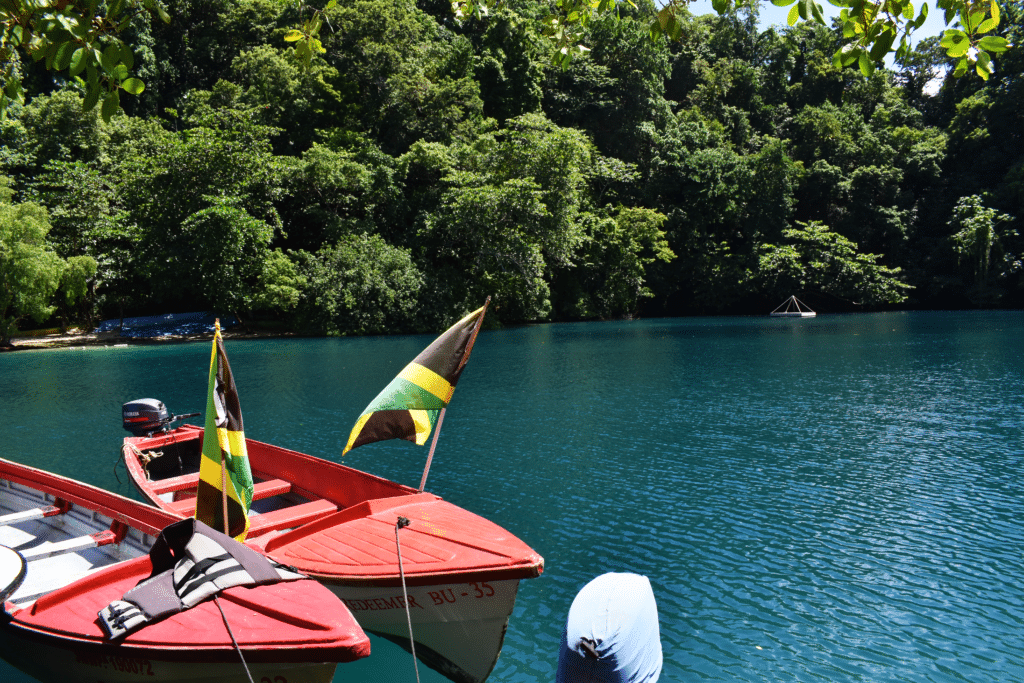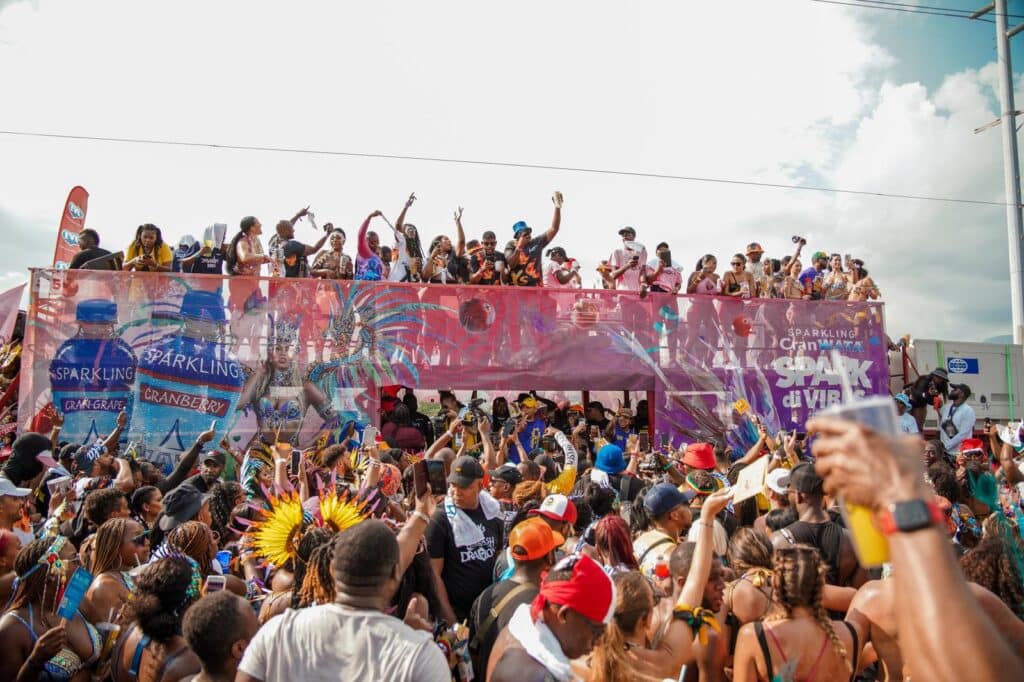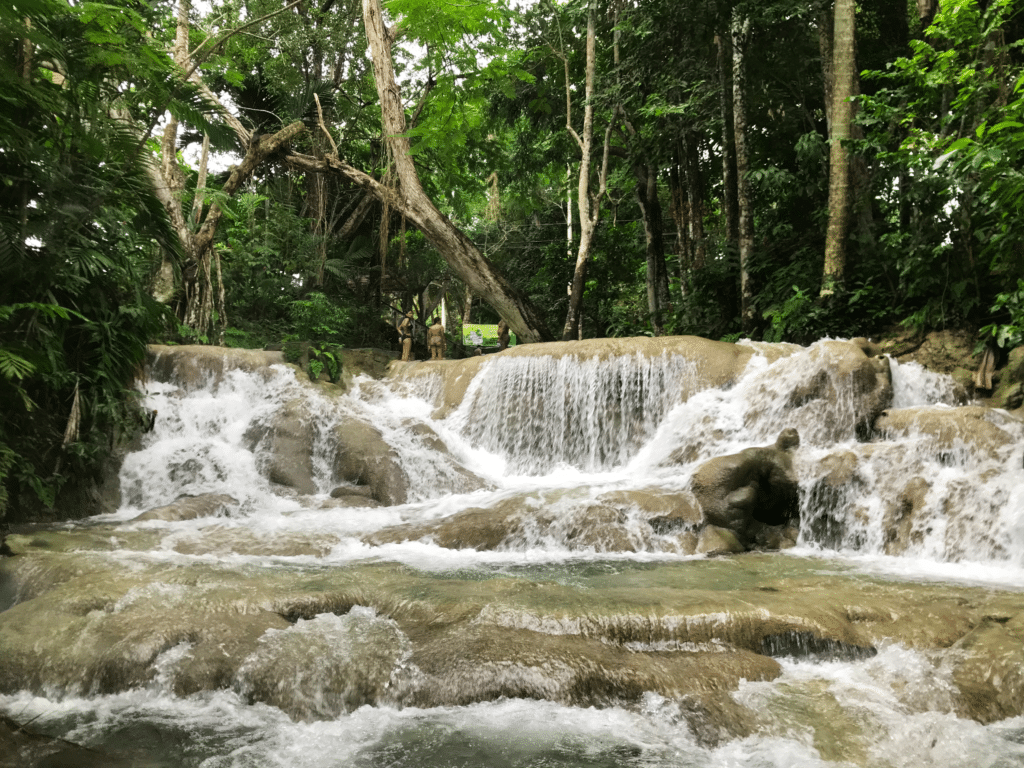Introduction: More Than Just a Curse Word
Jamaican badwords are more than just expletives—they are history, culture, and creative expression and raw emotion all wrapped into a few syllables. Whether used in anger, humor, or pure frustration, these words have a rhythm and intensity that make them uniquely Jamaican. But where did they come from? Why do some words carry more weight than others? And why do Jamaicans have such a colorful way of cussing?
So, whether you’re a curious outsider or a born-and-raised islander looking to better understand the roots of our colorful lingo, this is your crash course in the language that speaks louder than most. In this article, we’ll explore the history of Jamaican badwords, their deep cultural roots, and how they’ve evolved over time—from colonial influences to their place in modern music and everyday speech.
Where Did Jamaican Badwords Come From?
The origins of Jamaican badwords are as layered as our patois. Many come from British English, but were flipped, twisted, or reimagined by enslaved Africans who blended them with African languages, taboos, and spiritual concepts. Over time, these expressions took on new meanings—some vulgar, others symbolic.
Let’s break down a few of the most iconic ones:
1. Bumboclaat / Bloodclaat / Pussyclaat
These are among the most infamous—and potent—words in the Jamaican patois vocabulary. At the root of each is the word “claat,” a Jamaicanized version of “cloth.” But what kind of cloth, and why is it so offensive?
Let’s break it down:
- “Bloodclaat” refers to a menstrual cloth—the rag or piece of fabric traditionally used by women during their period before the advent of modern sanitary products.
- “Pussyclaat” is also linked to feminine hygiene, particularly cloths used for intimate cleaning.
- “Bumboclaat” is believed to refer to a rag used to wipe the buttocks, often associated with bathroom use or cleaning oneself after relieving oneself.
In Victorian-influenced colonial Jamaica, any public reference to bodily functions—especially female ones—was considered scandalous. These cloths were associated with shame, secrecy, and impurity, and mentioning them was not just impolite, it was downright defiant.
But Jamaicans have a long history of flipping social rules on their head. Over time, these taboo cloths became weapons of language—used to express raw emotion, rebellion, and intensity. What was once hidden or whispered became shouted, especially by the working class, the oppressed, and the outspoken.
Today, these words still carry a heavy charge. They can mean anger, frustration, shock, excitement—or just pure emphasis, depending on tone and context. They’re not for casual conversation, but in the right (or wrong) moment, they explode with cultural depth and emotional fire.
Example:
“Bloodclaat! Mi cyah believe seh di man really tek mi money an run!”
Translation: “Are you serious?! That guy really took my money and ran!”
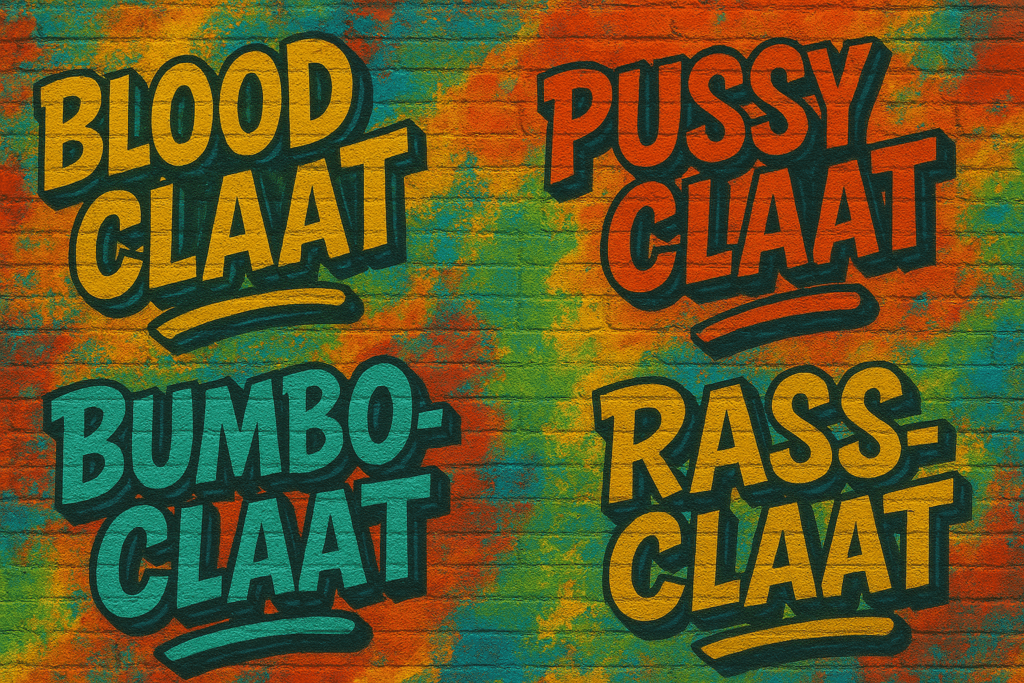
2. Raasclaat / Raas
Like its linguistic cousins, “raasclaat” combines “raas” (a word believed to be a Jamaicanized version of “arse” or backside) with “claat” (cloth). So yes—technically, it refers to a cloth used to wipe the buttocks, similar in vulgarity to “bumboclaat.”
But “raas” has taken on a life of its own. It’s used both as a standalone exclamation and in combination with “claat” to create an even stronger curse. Historically, it was meant to be shocking. But today, “raas” is often more playful or dramatic, depending on who says it and how.
Example:
“Raas! Yuh see how fast di man dash pon di bike?!”
(“Damn! Did you see how fast that guy sped off on the bike?!”)
So while the roots are vulgar, the usage varies—it can be funny, expressive, or heated.
3. Suck Yuh Mada (SYM)
There is arguably no worse verbal insult in Jamaican culture than “suck yuh mada.” This isn’t a random cuss—it’s a deeply personal and provocative statement, touching a cultural nerve that’s almost sacred.
The insult implies a sexual or degrading act involving someone’s mother, which, in Jamaican society, is the ultimate line not to be crossed. The mother figure is respected, protected, and emotionally revered. So when someone utters “SYM,” it’s not just trash talk—it’s a call to arms.
The phrase likely stems from post-slavery street culture, where hyper-masculinity, pride, and toughness were all wrapped up in verbal confrontations. “SYM” became the nuclear option—guaranteed to provoke a reaction, often physical.
It’s such a heavy phrase that many Jamaicans won’t even say it outright. Instead, they say “don’t tell mi nuttin ‘bout mi mada,” or simply “Don’t tell me bout mi mada!”—a warning that the line is being approached.
Example:
Someone says the wrong thing in a heated moment, and the response is: “Mi nah argue wid yuh—just nuh tell me nuttn ‘bout mi mada!“
Translation: “I’m not arguing with you—just don’t say anything about my mother.”
The Art of Swearing: How Jamaicans Use Badwords
Swearing in Jamaica is an art form. It’s not just about the words but how they are delivered—with passion, humor, or even a sense of camaraderie. They are not just about vulgarity but used to express strong emotions, emphasize points, and even build relationships.
Tone and Context Matter!! When shouted in anger, a badword can cut deep. When said jokingly among friends, it becomes a term of familiarity. When muttered under one’s breath, it signals frustration. Jamaicans also have a knack for mixing badwords into everyday speech without necessarily intending them as insults. A phrase like “Yuh a real raasclaat idiot!” can be a harsh insult or a playful jab, depending on tone and relationship. Additionally, many Jamaicans use badwords as exclamations of shock or surprise rather than direct insults:
“Bumboclaat! Wah really a gwaan yah so?” (Whoa! What’s really happening here?)
“Bumboclaat! Yuh see di goal?!” – (Expressing amazement at a great football play)
“Rahtid! A so di ting set?” (Wow! Is that how it is?)
In this way, badwords act as verbal exclamation points, intensifying emotions and making conversations more dynamic.
Everyday Humor, Yes, badwords are rude—but they’re also funny. Jamaicans have a way of using them to tease, joke, or just season the conversation. That’s why you’ll hear them in comedy skits, street corner banter, and the average domino game.
Resistance and Rebellion, Jamaicans have always had a rebellious streak. Badwords became one way of pushing back against colonial rules of ‘decency’, challenging polite society’s norms. In a culture where language is power, cussing is often an act of verbal defiance.
The Unspoken Rules of Jamaican Badwords
Jamaican badwords come with their own set of dos and don’ts. Here are a few key cultural rules:
Not to Be Said Around Elders
- In Jamaican households, cursing in front of parents, grandparents, or respected elders is considered highly disrespectful.
- Even people who curse regularly will hold their tongue in certain settings
Some Words Are More Offensive Than Others
- Words like “dutty” or “wretch” are considered mild insults.
- However, words like “bloodclaat” and “bumboclaat” are seen as highly offensive, especially in formal or religious environments.
- “Suck yuh mada” (SYM) is one of the most dangerous insults, as it directly attacks a person’s mother and honor—something many Jamaicans will not tolerate. In Jamaican culture, insulting someone’s mother is one of the gravest offenses, often leading to immediate conflict
Context Determines Meaning
- The tone and situation in which a badword is used determine how it is received.
- Saying “Bumboclaat!” in shock at a football game is different from saying it angrily to insult someone.
- Some words have been adapted into more socially acceptable slang (e.g., “Raas” is sometimes used playfully).
Understanding these unspoken rules helps in navigating Jamaican speech and avoiding unnecessary conflict.
So… Should You Use Them?
That’s up to you—but know this: Jamaican badwords aren’t just thrown around aimlessly. They carry history, power, and purpose. They’ve survived slavery, colonization, and decades of censorship. Today, they remain one of the most raw, real, and recognizable parts of Jamaican culture.
Use them wisely—or just enjoy them from a safe distance and a good laugh.
Final Thoughts: More Than Just Profanity
Jamaican badwords are more than just curse words—they are a reflection of the island’s history, culture, and spirit. Whether used in anger, humor, or casual conversation, they serve as a powerful tool for expression and identity.
Key Takeaways:
✔ Badwords have roots in African languages, colonial oppression, and rebellion.
✔ They are used to express emotion, emphasize points, and challenge authority.
✔ There are strict social rules about when and where to use them.
Understanding the history and cultural importance of these words helps in appreciating them as a unique part of Jamaican speech—one that continues to evolve and shape the way Jamaicans communicate.
Until next time, Walk Good.
